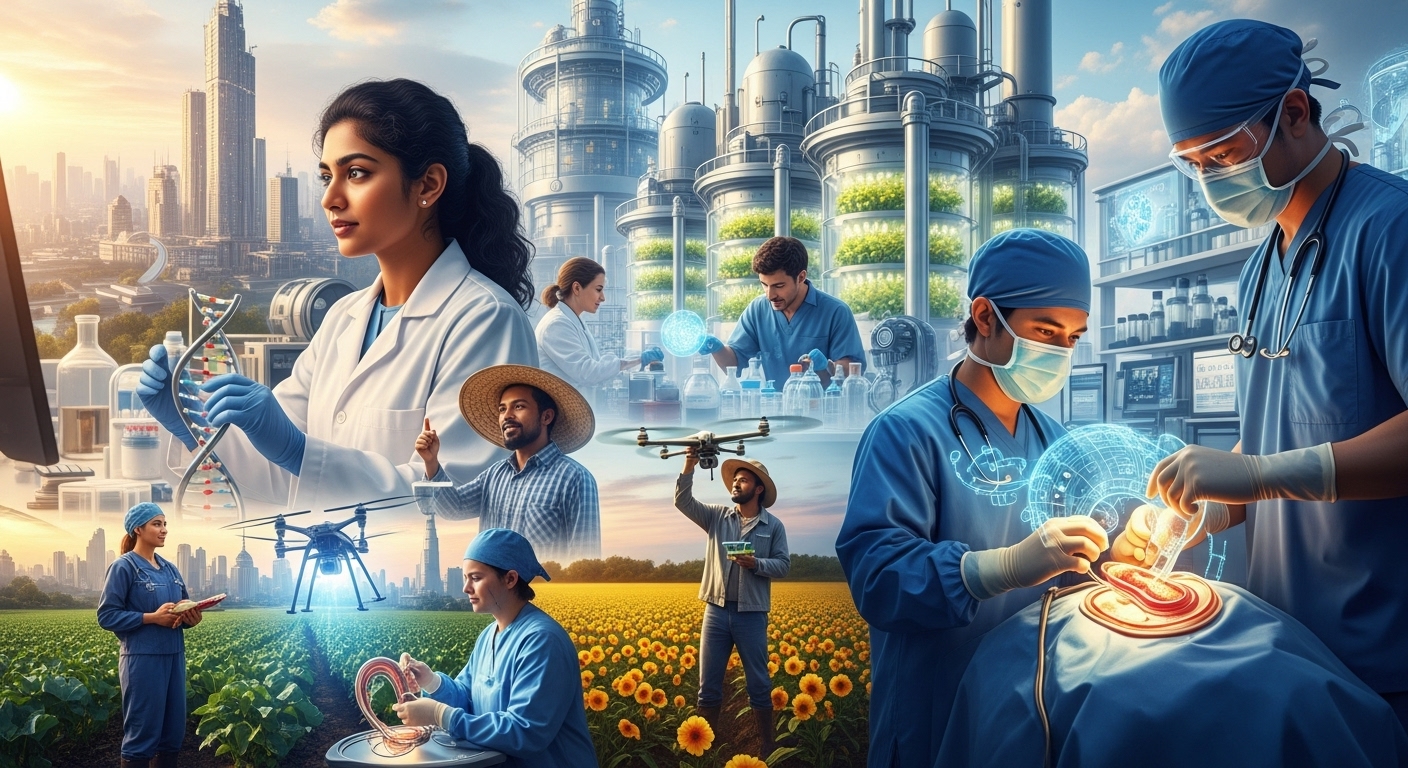Biotechnology: A Look into the Future of Science and Innovation
Biotechnology, or biotech for short, is a field that merges biology and technology to create innovative solutions for various industries. This interdisciplinary approach has revolutionized the way we approach healthcare, agriculture, environmental conservation, and more. In this blog post, we will explore the history, significance, applications, and future trends of biotechnology.
### History of Biotechnology
Biotechnology has deep roots in human history, with early examples dating back to ancient civilizations. The domestication of plants and animals for agriculture can be considered an early form of biotechnology. However, modern biotechnology as we know it today began to emerge in the 20th century with advancements in genetics, microbiology, and biochemistry. The discovery of DNA’s structure by Watson and Crick in 1953 paved the way for significant breakthroughs in biotechnology, leading to the birth of genetic engineering and recombinant DNA technology.
### Significance of Biotechnology
The significance of biotechnology cannot be overstated. It has transformed healthcare by enabling the development of life-saving drugs, personalized medicine, and gene therapies. In agriculture, biotechnology has revolutionized crop production through genetically modified organisms (GMOs) that are more resistant to pests and diseases. Biotechnology also plays a crucial role in environmental conservation by offering sustainable solutions to address pollution, waste management, and climate change.
### Applications of Biotechnology
The applications of biotechnology are vast and diverse. In medicine, biotechnology is used to produce vaccines, antibiotics, and therapeutic proteins. Genetic engineering allows for the creation of genetically modified organisms that can produce valuable substances such as insulin or enzymes used in industrial processes. In agriculture, biotechnology is employed to develop drought-resistant crops, enhance crop yields, and reduce the use of chemical pesticides. Environmental biotechnology involves using biological processes to treat wastewater, remediate polluted sites, and generate biofuels.
### Future Trends in Biotechnology
The future of biotechnology holds immense promise and potential. Advancements in gene editing technologies like CRISPR-Cas9 are revolutionizing the field by offering precise and efficient ways to modify genetic material. Synthetic biology, which involves designing and constructing biological systems for specific purposes, is opening up new possibilities for creating novel drugs, biofuels, and materials. The convergence of biotechnology with artificial intelligence and big data is enabling researchers to analyze vast amounts of biological information and accelerate the discovery of new therapies and treatments.
As we look ahead, personalized medicine tailored to an individual’s genetic makeup is set to become more prevalent, leading to more effective and targeted treatments with fewer side effects. The development of sustainable bioprocessing technologies will also play a crucial role in reducing the environmental impact of industrial processes and promoting a greener economy.
In conclusion, biotechnology is a dynamic and rapidly evolving field that holds the key to addressing some of the most pressing challenges facing humanity today. From healthcare to agriculture to environmental sustainability, biotechnology offers innovative solutions that have the potential to transform our world for the better. As we continue to push the boundaries of scientific discovery and technological innovation, the future of biotechnology looks brighter than ever.



